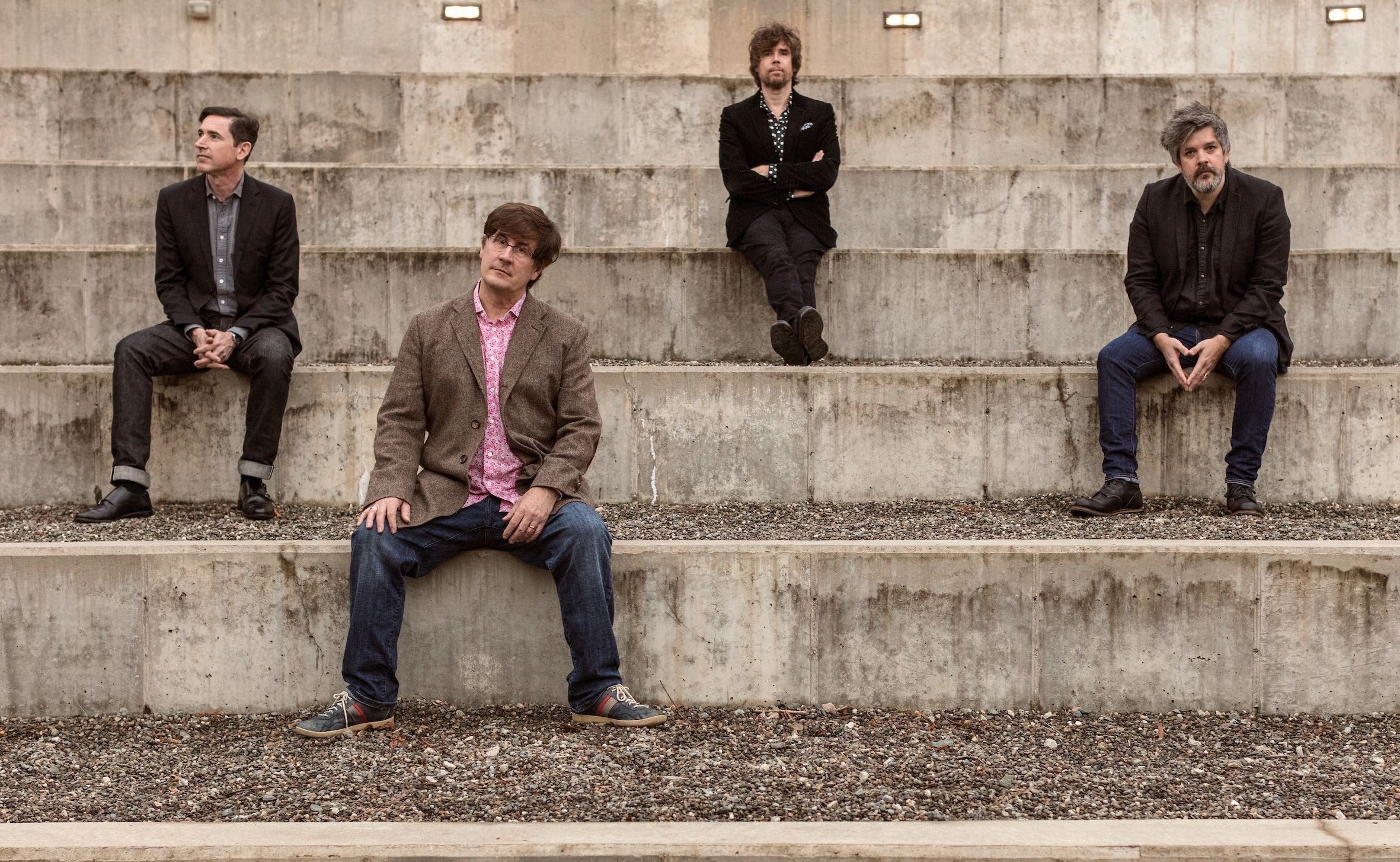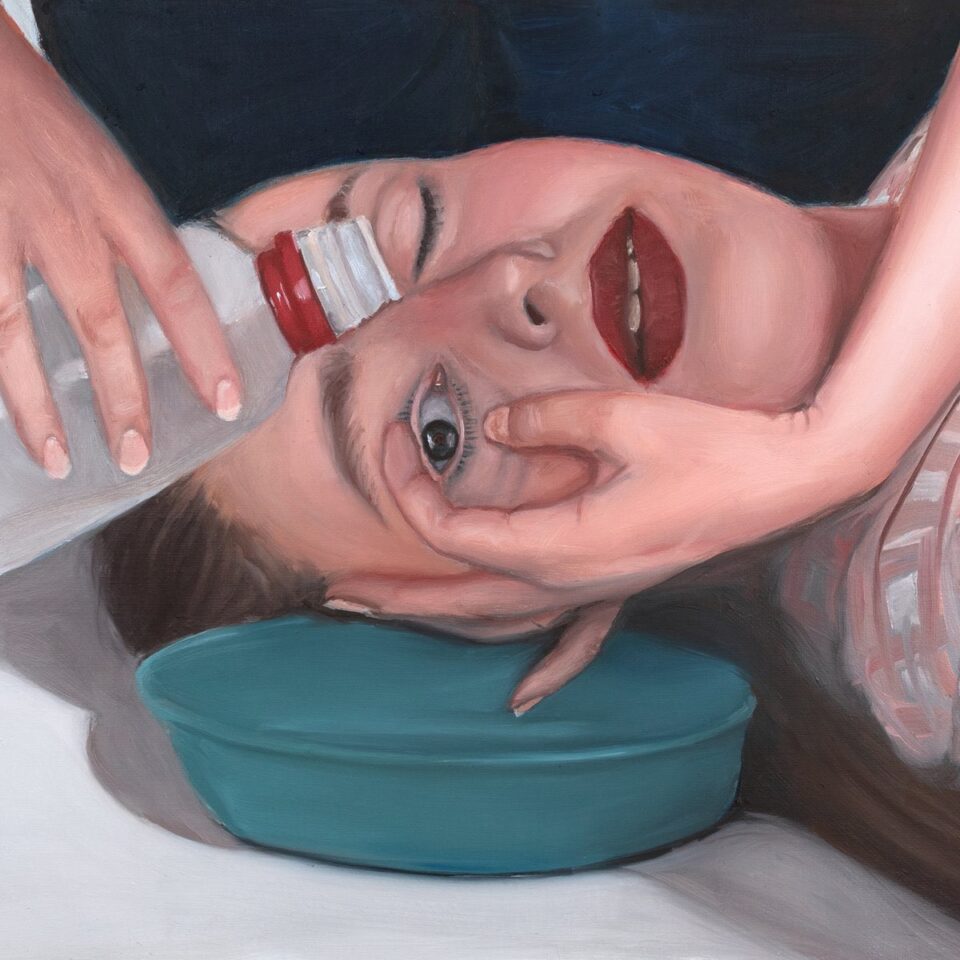For every note of beautiful luster and well-turned phrase on John Darnielle’s new album with The Mountain Goats, In League with Dragons, we are reminded that he writes music and lyrics lean to the bone, with the passion of an old world craftsman. Pained by and patient with every detail, Darnielle could have been a cobbler or a baker, talking as he does about each element of the album’s characters and motives as if preparing a layer of leather or a flaky crust. When he’s not discussing that, he seems happiest chatting about the upcoming second season of I Only Listen to The Mountain Goats, his podcast on everybody else’s books and records—“the very things that inspire me,” as he puts it.
Considering how The Mountain Goats’ sound has progressed since your start is that richness now part of the writing process? Or do you still write as if playing things sparsely, with just a boom box to back you?
I write about the same. Though I am happier to spend more time doing it. I used to feel this incredible urgency to finish a song—I just like to sit down, write, and be done quickly. Get in, get out. Like it would preserve the initial impulse and energy of the song. I don’t know whether that’s true or not. What I do know is that now, I rather enjoy taking my time. I still usually finish songs within a few hours of starting one, but that is no longer an imperative for me.
How do you treat writing essays or a novel? Are you first take, best take? Do you linger and endlessly edit?
Books are such a completely different effort for me than writing a song. Revising is where all the action is when writing a book. With songs, quite often, you’re hearing the line as it comes out of me. I really like for stuff to sound conversational, to preserve the illusion that what you’re hearing is stuff that is just occurring to a person off the top of his head. With a book, I want it all to flow naturally. But I believe in the sentence.
Unlike with lyrics, there is no urgency. You don’t want to run away and be done.
“A song is a communal experience, one made in the hopes that other people will take and have use for it. A book is a personal dream you’re having, the sharing part of which is unrelated to its writing.”
There is a part of you that never wants to be finished when writing a book. With a song, I want it to be done, and share it. With books…the perfect book would never end. You could just work on it every day until you die.
Plus, a song is a communal experience, one made in the hopes that other people will take and have use for it. A book is a personal dream you’re having, the sharing part of which is unrelated to its writing.
Wolf in White Van and Black Sabbath’s Master of Reality: Certainly you were writing these books as you worked on Mountain Goats records. Are you compartmentalizing?
Everything is always concurrent, working whatever/whenever. There’s no bleed through.
Do you need to separate yourself in any way?
Ever since Universal Harvester, I have an office. I don’t have a guitar or a keyboard in there and I don’t write lyrics in there. I don’t do interviews there—I’m at my house for those. The Mountain Goats are not allowed in that office. That said, I work on books on planes and buses and hotel rooms, and I write songs wherever.
Are you really a D&D guy?
Only in as much as I’m always role-playing.
In the latter part of your Mountain Goats career, it seems you’re crafting records with long-form concepts and unifying themes (Beat the Champ, Goths, Dragons). Why now?
Tallahassee was thematic. I’ve always been drawn to writing around a theme, because you’re probably writing around a theme anyway. There’s that thing where all albums are concept albums. Whatever you’re writing is somewhat about yourself, about the world you live in, and the ways you sit in that. One way of keeping in touch with that is to set things in a somewhat consistent universe.
Well, this album doesn’t have that.
No. What it does have is figures who reappear throughout in different clothing. You have Doc Gooden, a pitcher at the end of his career, still trying out in Seattle after his glory days. You have a beaten warrior in the title track, waiting for a defender to come and save him. You have a person in a basement considering burning his entire house down. They share a space, though—one of concentrated strength in the midst of declining power.
There’s a noir feel to the album. Where does it come from?
I’m super stoked about a noir writer whose work I found in a used bookstore in Galesburg, Illinois. I found a book, part of the Godine Double Detective series, which makes me love the publishing industry even more, with its value-for-money idea of getting more people to read the work. Leonardo Sciascia was his name, and he was a Sicilian guy, so he was writing about the mob, but not our mob stories. His are mafia stories that are far more ambiguous, and give the reader much less resolve. He was a genius. Ross Macdonald, too. A friend of mine handed me his work, and that probably informed this new record.
Should I assume that “Sicilian Crest” on the new album stems from that?
Like Harlan Ellison, I keep titles in a notebook—several notebooks, actually. Unlike him, I don’t create books from a title. Quite the opposite. I like the fact that “Sicilian Crest” doesn’t refer to anything…
But sounds like it does.
Exactly. As if you could say, “Who’s that guy with the Sicilian crest?” And someone would nod with you, acknowledging the possibility. It’s an old school Mountain Goats exercise of saying a thing that tries to convey a real mood that we can share, while—at its core—not being about anything. In the final analysis, it’s a song about the appeal of fascism. Because it is a set of sentiments being expressed in the hopes that you will respond, except they are not offering you anything.
“I don’t want to get granular on my own stuff. I’m not self-reflective in that way. I prefer to think of the stuff I am in awe of, which is not my own.”
We’re coming up on the second season of I Only Listen to The Mountain Goats. Starting with season one, what did you expect out of a personal podcast?
I go into everything with zero expectations, like “Cool. Let’s see how this thing goes.” I find that’s always the healthiest approach. The thing that I expect from myself is that I will want to talk about other stuff—other people’s music or books. Because I am proud of what I do and I hope that it’s good, but generally speaking, in conversation I would rather discuss someone and something else other than myself. I don’t want to get granular on my own stuff. I’m not self-reflective in that way. I prefer to think of the stuff I am in awe of, which is not my own.
How does objectivity figure into the conversation? You’re not working an us vs. them angle, but how can you be objective about all the work—yours and someone else’s?
I think I can be, but that does sort of key into a real hobby horse of mine. I used to complain that nobody talks about lyrics anymore—which is still kind of true—but nobody really talks about composition or the players I use, or the studios or the keys. It’s not stuff that people focus on. But I do. I remember fights we have and such. I remember doors creaking in the studio. That’s my passion. FL







